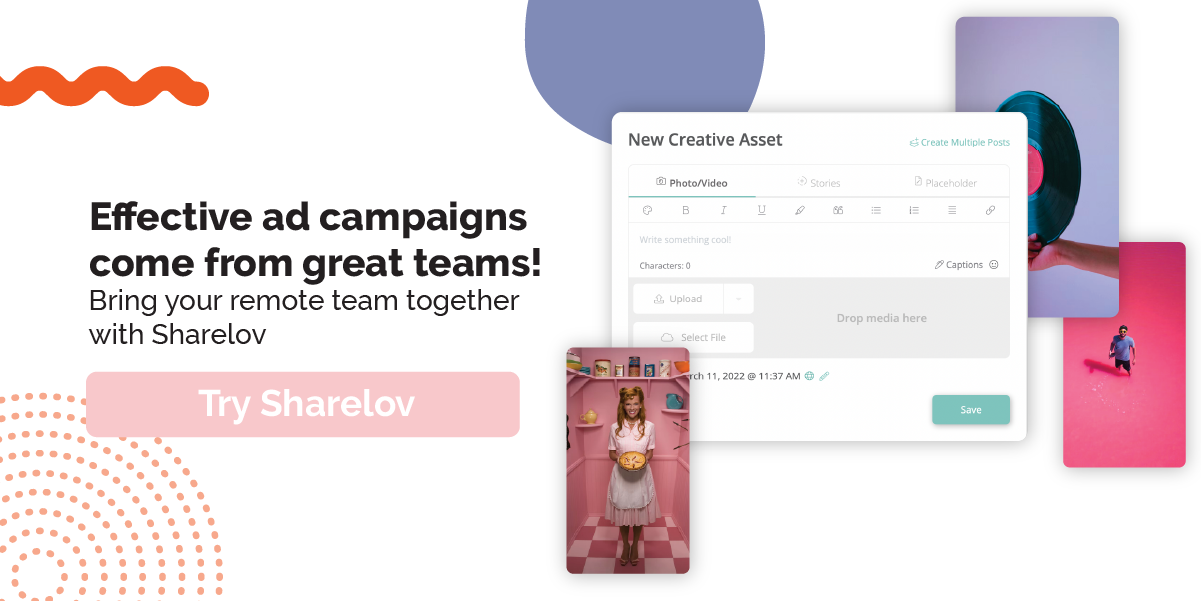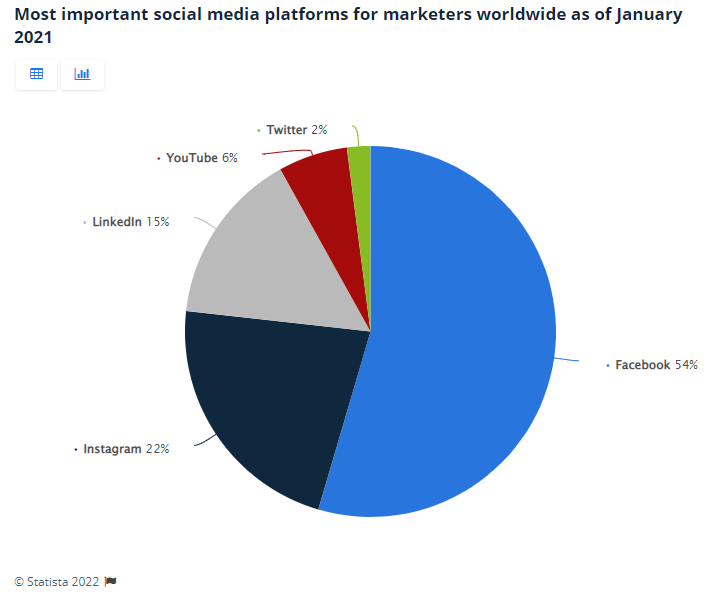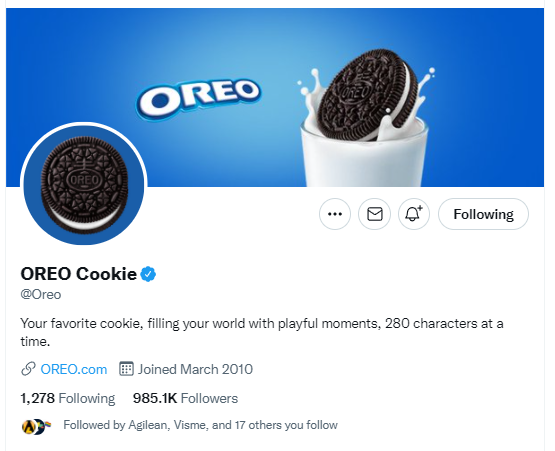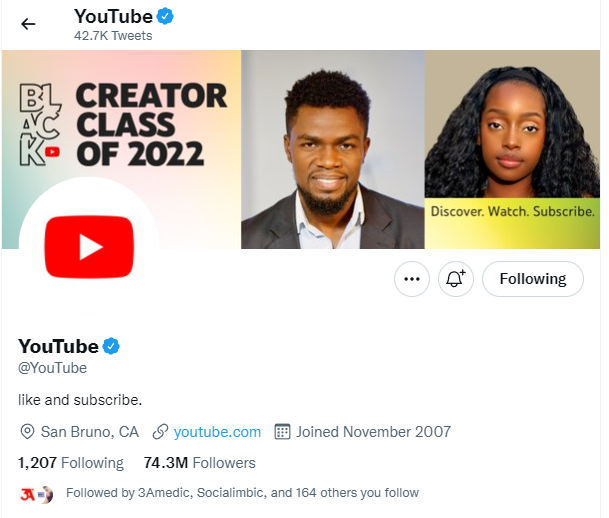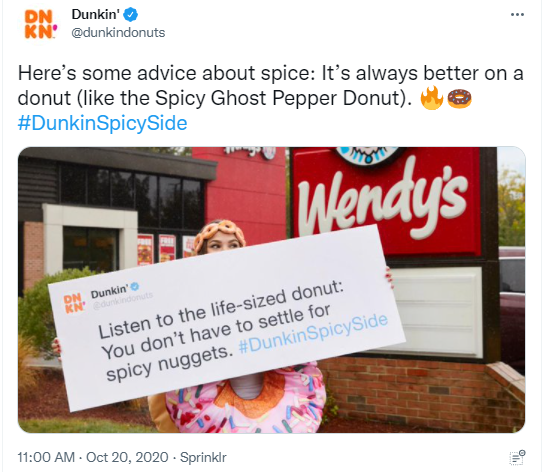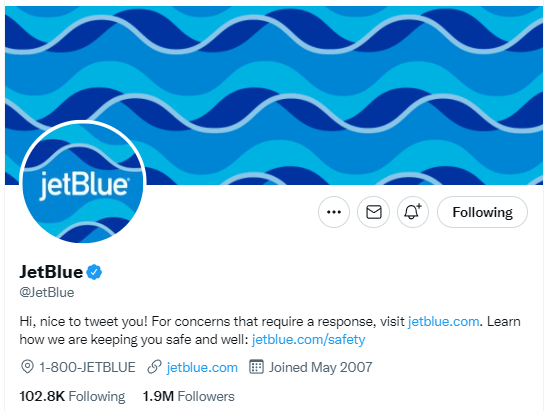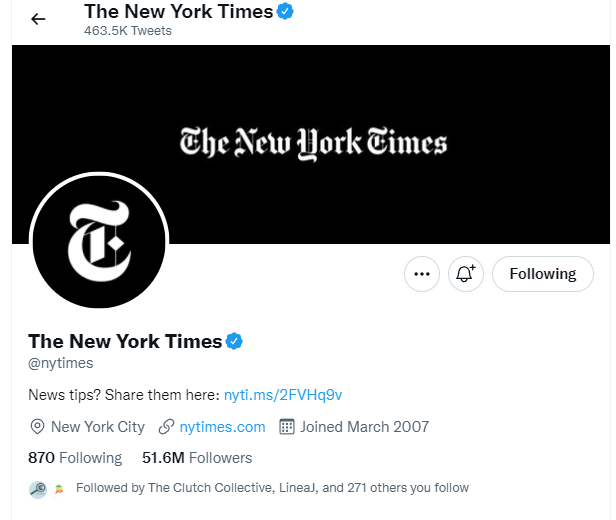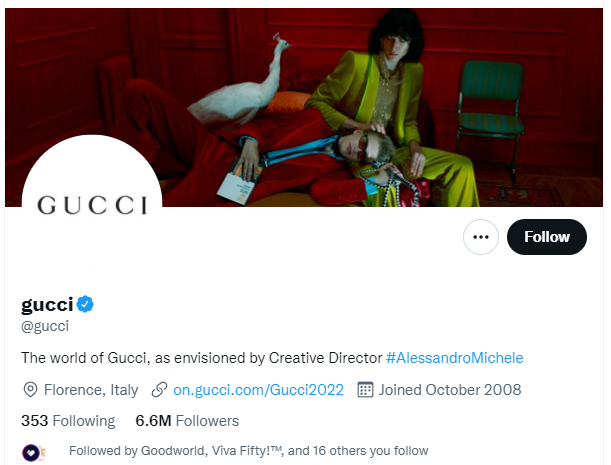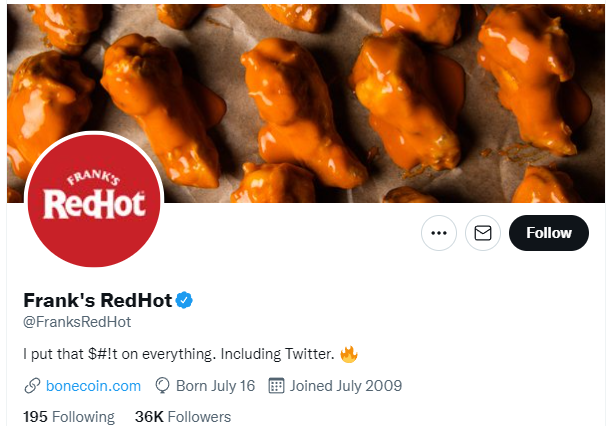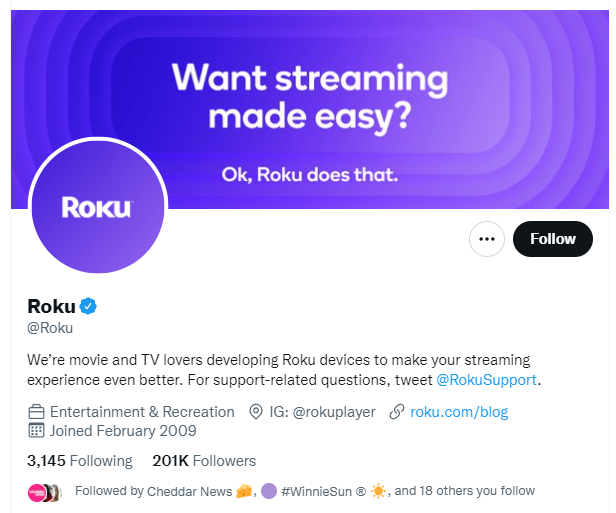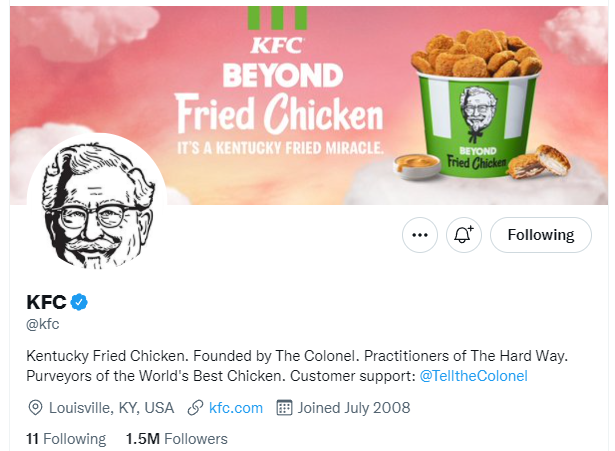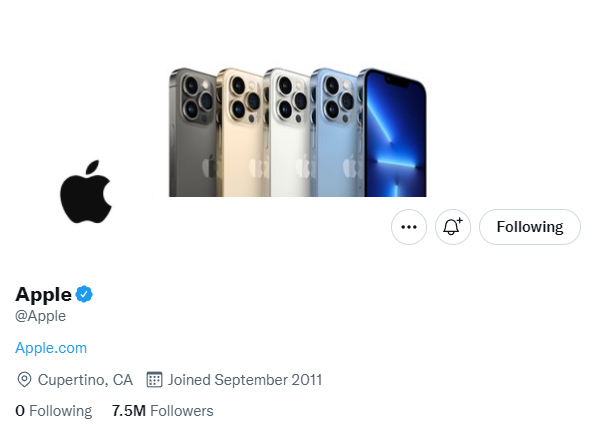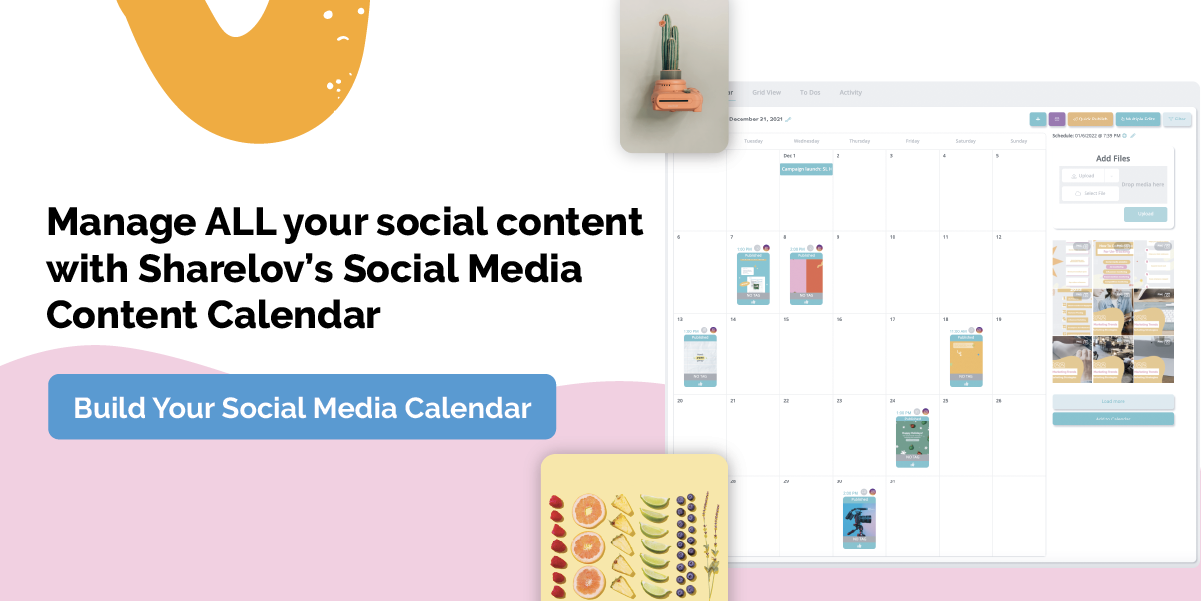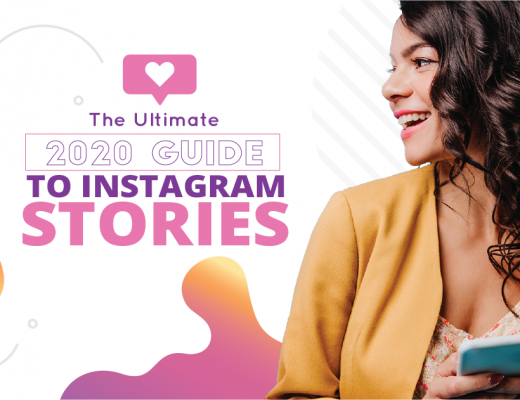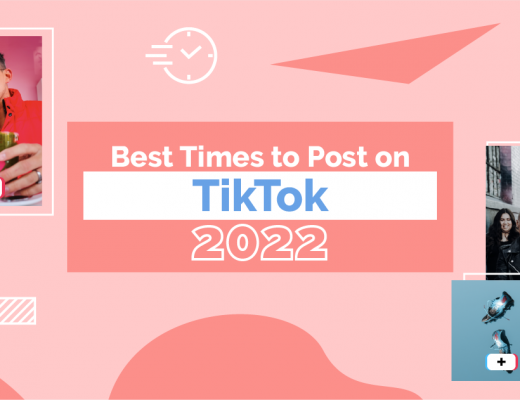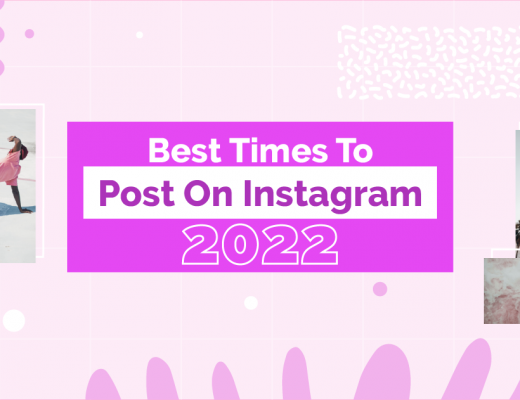Every day, 217 million people share 280-character-or-less messages with businesses, brands, colleagues, friends, and strangers on Twitter.
But why is it that some brands seem to collect hundreds of thousands, or even millions, of followers, while others feel they’re tweeting to crickets?
It all begins with your Twitter bio: the 160-character introduction that can make or break your success on the platform.
When people love it, you get lots of followers.
But if it feels out-of-touch, preachy, or boring, you may never get the opportunity to show off your brand’s personality (or products).
Find out how to create the perfect Twitter bio with tips, best practices, and examples to help you attract more followers in 2022 in the guide below.
Does Twitter Still Matter To Brands in 2022?
With more than 330 million active monthly users and 217 active daily users, Twitter is an excellent resource for brands that understand the value of engagement.
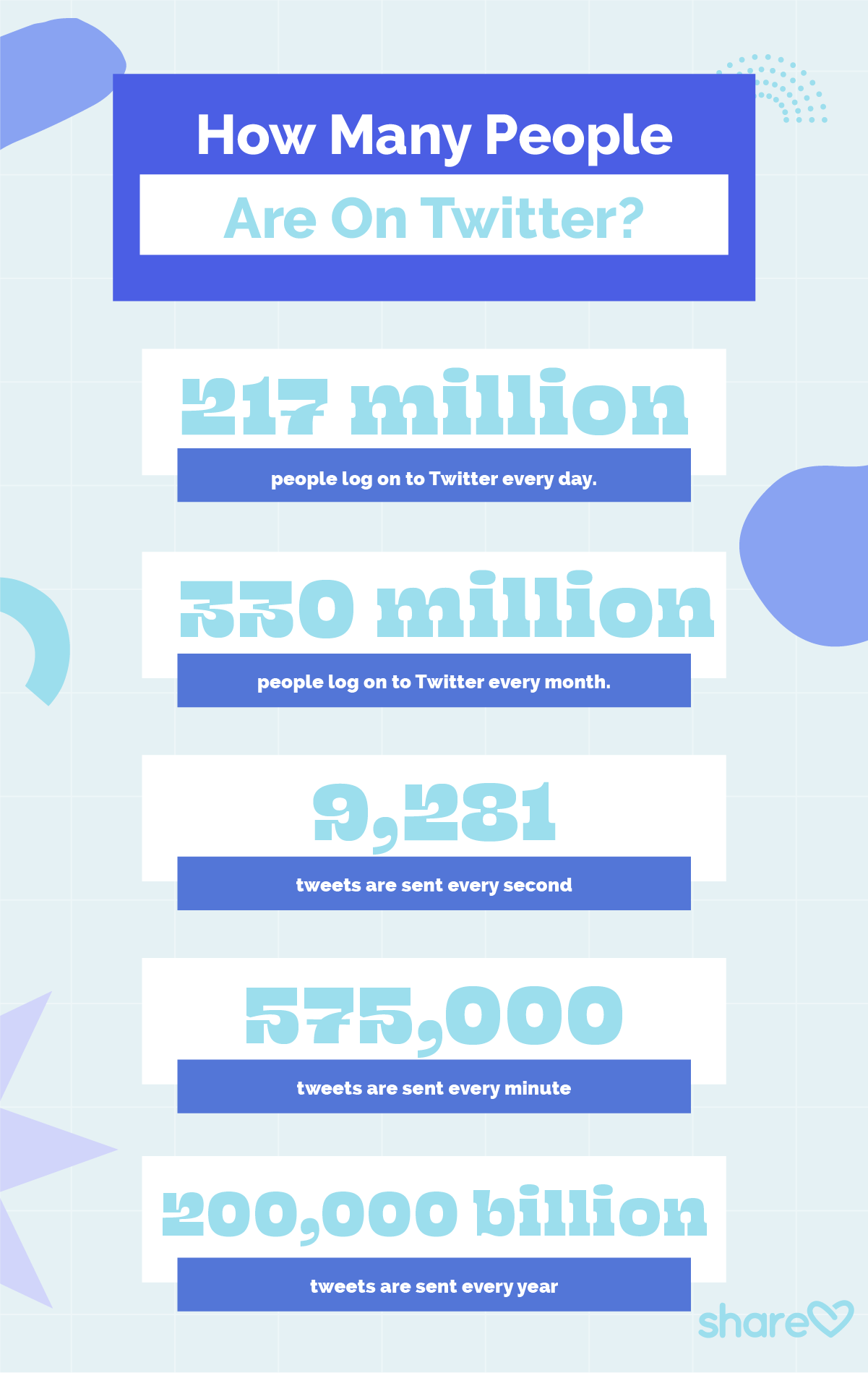
Twitter users are often highly engaged and enjoy interacting with brands, plus they don’t mind being “promoted to” if it’s done in a way that’s entertaining, informative, or otherwise captivating.
More than half (53%) of people on Twitter are likely to be the first ones buying a product, and nearly all users (80%) like to discover what’s new.
“Twitter is such an amazing platform for building awareness
and reaching new audiences.”
– Jay Maldonaldo, Senior Marketing Manager at MailChimp
The platform is also one of the top places to share breaking news that applies to your brand or the social causes you support.
Twitter Statistics For 2022
In this section, we take a quick peek at some of the latest Twitter statistics, to help you decide if it’s a good fit for your brand.
- 9,281 Tweets are sent every second ♦ 575,000 tweets are sent every minute ♦ 200,000 billion Tweets are sent every year
- 70% of people say that “Brand Twitter” is one of the best parts of the platform, and that brands “add to the enjoyment of using Twitter.”
- Last year, Twitter was the fifth most-important social media platform for marketers.
- The majority of Twitter users (80%) “don’t mind being sold to on social media, “as long as it’s fun, useful, entertaining, informative, or moves them in some way.”
If you’re looking to engage directly with potential and current customers, share and discuss breaking news as it applies to your business or industry, or engage in the social justice and community programs tied to your brand, Twitter may be an excellent social platform for you.
The first step toward getting started and building an audience on Twitter is crafting a bio that makes people tap “Follow.”
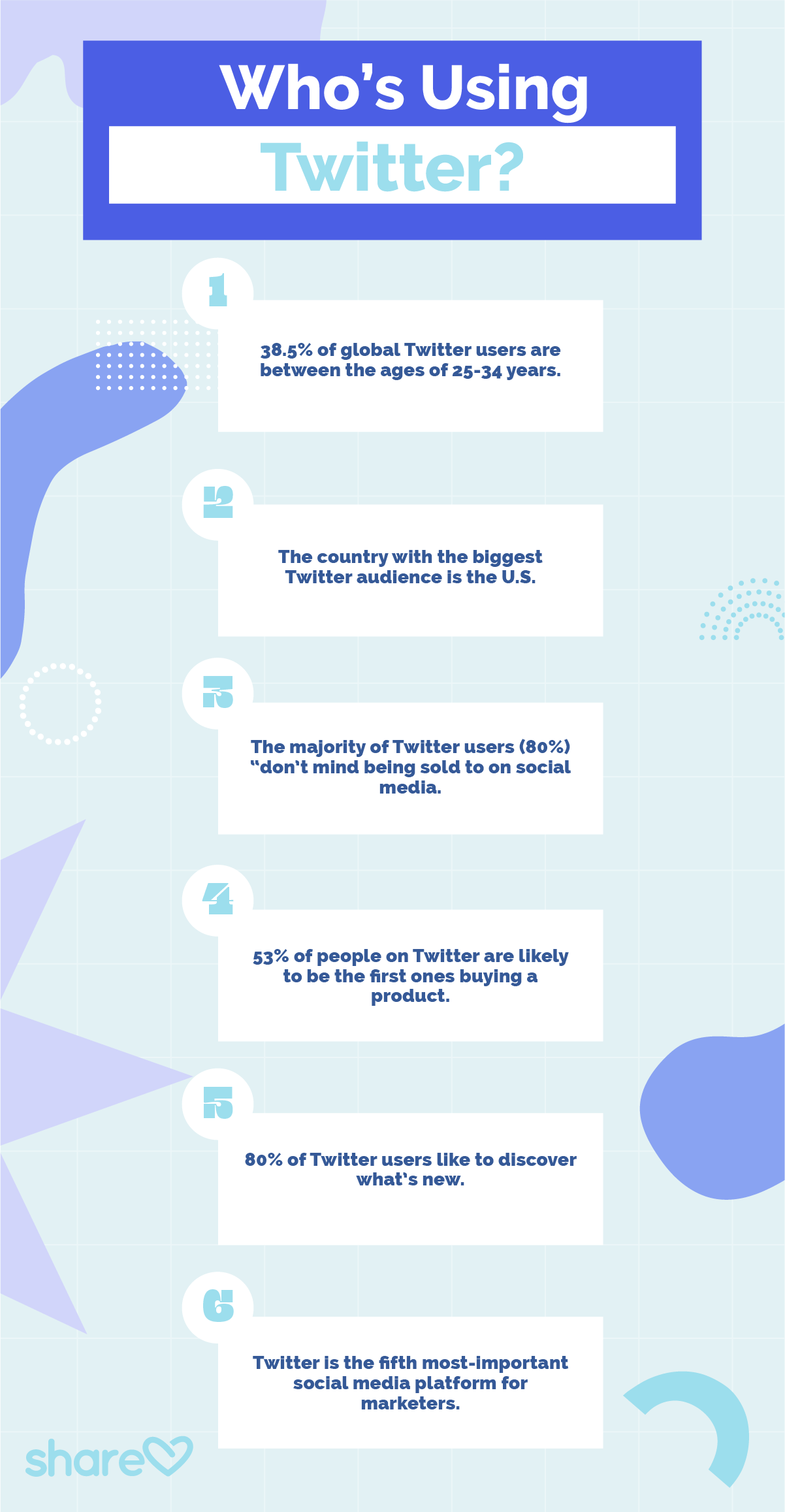
We’ve got you covered! You’ll find plenty of tips, suggestions, and examples below. And if you don’t find what you’re looking for, just drop a note in the comments section beneath this guide!
What Is A Twitter Bio?
A Twitter bio is the text component of your profile, consisting of 160 characters that allow you to introduce yourself to the Twitter universe using text, hashtags, emojis, and other handles. Your bio is public and anyone can see it.
Individual users and brands use bios in many different ways, but on Twitter — creativity rules.
Some brands use the bio to introduce themselves, share their achievements, describe their products, or show off their personalities. Others focus only on the call-to-action and handle links to their other Twitter accounts.
How you craft your bio depends a lot on whether you’re describing your company or yourself, and what niche audience you’re trying to reach.
For example, Oreo Cookies takes its space to describe its product and benefits with a unique tone.
- “Your favorite cookie, filling your world with playful moments, 280 characters at a time.”
YouTube takes an entirely different approach by using only 19 characters to publish its most important call-to-action.
- “like and subscribe.”
Advertising and copywriting Wizard George Tannenbaum uses his bio to share his philosophy, promote his company, and outline his experience:
- “Good writing is a business advantage. ™ Founder of GeorgeCo., LLC, a Delaware Company. Former copy chief and ECD on IBM at Ogilvy.”
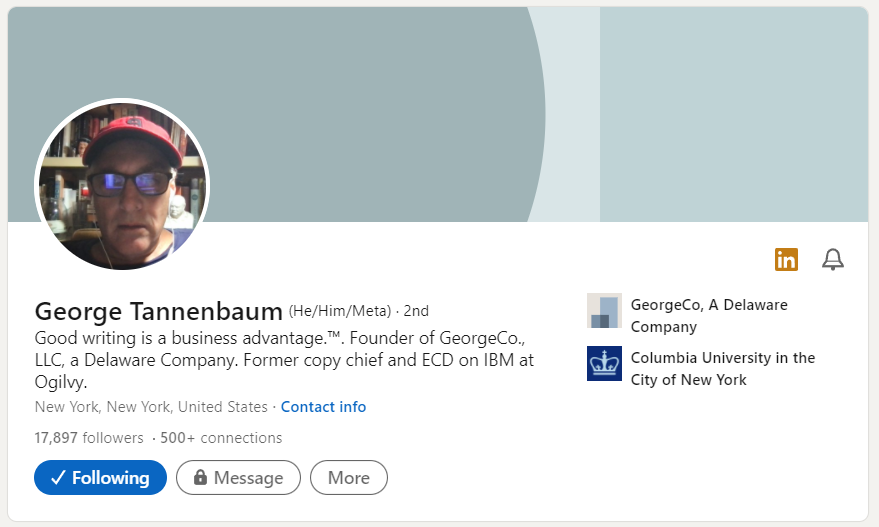
In some cases, emojis can help create a better bio.
For example, writer and disability advocate Dr. Jess Norris uses emojis set between eight job titles to lighten the mood and create a warm and inviting introduction to her services. As a bonus, the emojis also help make the information more readable.
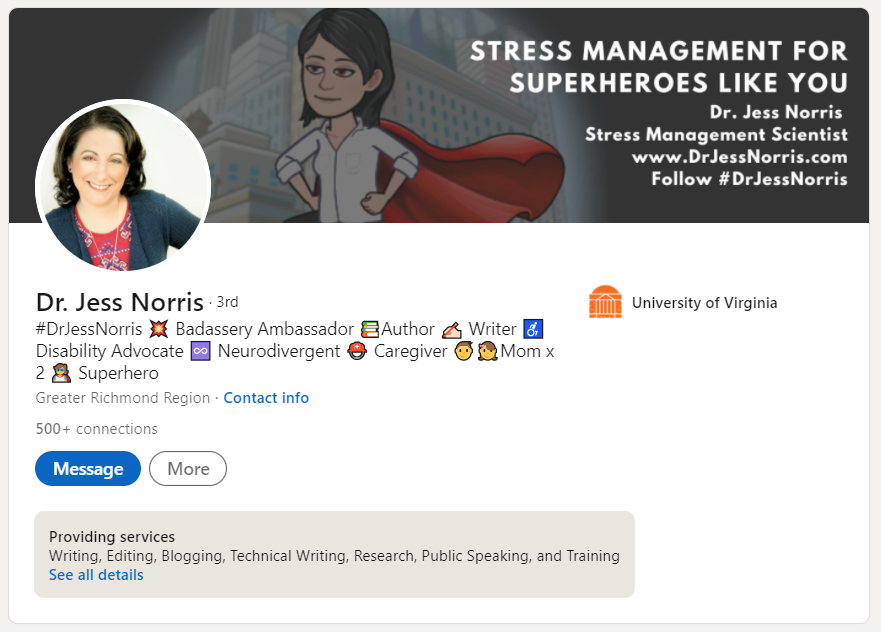
With so many ways to approach your bio, how do you know where to begin? Check out the tips below to help you get started.
How To Write Your Twitter Bio
You’ve got 160 characters to introduce yourself to the world. Where should you begin?
Elements Of A Twitter Bio
A standard Twitter bio often contains several elements that describe:
- Who you are
- What you do
- Your Achievements
- What value you bring
- Why people should follow you
Additionally, your bio may contain:
- A call-to-action
- A link to your website
- Social proof
- Your location
- Hashtag(s)
- Emoji(s)
- Handle to your other Twitter account(s)
- Current hours (for brick and mortar businesses)
It’s up to you to decide which elements are most important to use in your bio, and of lot of that depends on your target audience.
Large, well-known brands often simplify their bios to one call to action or link, while lesser-known brands and personalities typically take the space to describe who they are and what they do.
Don’t be afraid to experiment with different elements in your Twitter bio. You can use Twitter analytics to track the potential impact that different elements of your bio have on increasing your following.
How Many Characters To Use In Your Bio
You can use all 160 characters to write your bio, or keep it short and simple, but if you’re a newer business or new to Twitter, we recommend using at least 91 characters.
The data says that bios made up of 91-160 characters get the most attention, and that, on average, bios with exactly 91 characters have the most followers.
How Many Hashtags To Use In Your Bio
Generally speaking, you might do better to avoid hashtags in your bio, since there’s no evidence that hashtags help at all. In fact, data shows that the more hashtags you add, the fewer followers you’ll get.
Please don’t confuse hashtags in your bio with hashtags in your tweets! Using hashtags in your tweets is a must — just one or two can increase your engagement by 21% or more.
Consider saving your hashtags for Tweets and leaving them out of your bio.
How Many Emojis To Use In You Bio
Should your Twitter bio contain hashtags and emojis? Is it better for brands to state what they do or should they share a joke, show off their personality, or project an attitude?
There’s no evidence that emojis attract more followers on Twitter, and in some cases, they can reduce the number of followers you get. However, emojis in Tweets may boost your engagement, so consider leaving them out of your bio but including them in your posts.
4 Top Elements To Include In Your Bio
If you’re looking to add more Twitter followers, we recommend including several key pieces of information in your bio.
As you and your team are crafting the copy, consider how you might include:
- Keywords to help people find your business.
- A call to action that guides people toward your goals. For example, if you’re trying to build your audience, your CTA might focus on encouraging people to follow you.
- The benefits you or your product bring to consumers.
- A bit of creativity and personality. Twitter loves originality, so finding a way to express your brand’s personality — without sounding like every other brand — goes a long way toward developing a well-targeted group of followers.
Improve your keywords, CTA, benefits listing, and personality by taking time to browse through the bios of people in your industry, especially the competitors and any influencers your audience engages with.
By monitoring your competitors and industry influencers, you’ll learn what topics and tone your target audience is receptive to on Twitter.
Insert banner:
What are your competitors up to? Check out their latest strategies with social media monitoring across Facebook, Instagram, and TikTok
In some industries, a bit of playful competition can even spark viral content.
For example, Dunkin’ Donuts tweeted an image of a donut-wearing sign-holder carrying a giant “Tweet” that read: “Listen to the life-sized donut: you don’t have to settle for spicy nuggets.”
Twitter loved it, and the post sparked 155 comments, 177 shares, and over 1,300 likes.
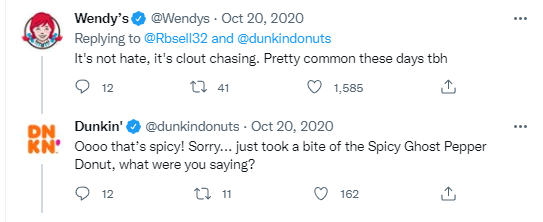
We’re not recommending that you take jabs at the competition (especially in your bio!).
But, monitoring your competitors’ bios (and tweets) can go a long way toward developing your unique tone on Twitter, so that you can relate well to your target audience.
Including keywords, a CTA, listing of your product or service’s benefits, and an infusion of personality in your bio can help you build a successful, engaged following on the platform.
4 Tips to Help You Nail The Tone For Your Twitter Bio
If you haven’t been active on Twitter in a while, it can be a challenge to nail the right tone and presentation.
After all, you don’t want to make people yawn — but you don’t want to toss out humor or sarcasm that isn’t well-received, either.
So how can you nail the tone for your bio without boring people or sounding like a sales-y jerk?
#1: Ask For Team Feedback
Instead of crafting one bio on your own, try drafting several, each with a different approach. Then, kick it around with your team — and ask for their feedback and ideas to help improve on your first draft.
Some of the best bios on Twitter can really make you laugh, but trying to include humor in your own bio can backfire if you don’t know how to pull it off.
In a recent survey by Twitter, one out of two people said that brands that rely only on humor and jokes can feel outdated.

Before you publish your bio, share it with your team members for creative feedback and ideas. This will help you nail the tone so you can attract more followers with a compelling Twitter bio.
#2 Converse, Connect, And Relate
Twitter users tend to prefer down-to-earth, “real” personalities. They come to the platform for conversation about the latest events, news, and products — in other words, “all things current.”
According to recent research by #RealTalk, people no longer want brands to rely on being funny or playful. Instead, they want brands whose tone evolves with the times.
“Because sometimes the moment just doesn’t call for an LOL.”
Twitter RealTalk report, 2022
Take an authentic approach to your introduction, and avoid being flippant about culture and current concerns, which is a mistake many brands made over the past couple of years.
For example, @gotohellisabel called out, and probably embarrassed a few, brands for using Mental Health Day to sell their products, “Brands be like “aw it’s mental health day 🙁 cheer up with 15% off using this coupon code! :)”
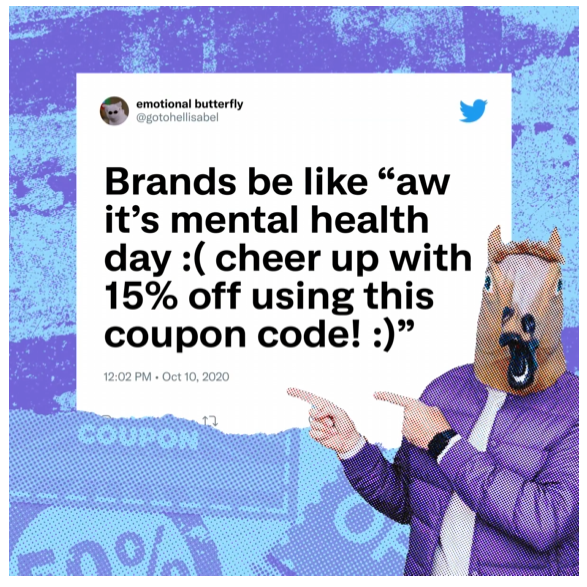
Source: @gotohellisabel via Twitter marketing
#3 Refresh Your Bio Frequently
Change up your Twitter bio regularly to keep it current and relevant.
Before you do, though, make sure to check out your Twitter analytics and find out which of your bios performed the best for attracting new followers.
#4 Out With The Old, In With The New
When writing your bio, you might need to toss out some of the preset notions you have about how to present yourself or your brand to the world.
What’s worked for you in the past, or on other platforms, may fall flat on Twitter where users place high expectations on brand authenticity.
To nail the tone for your Twitter bio, enlist the help of your team members for feedback and ideas, strive toward conversations over sales, refresh your bio often, and toss out any outdated ideas you have about how to present yourself, or your brand, to the world.
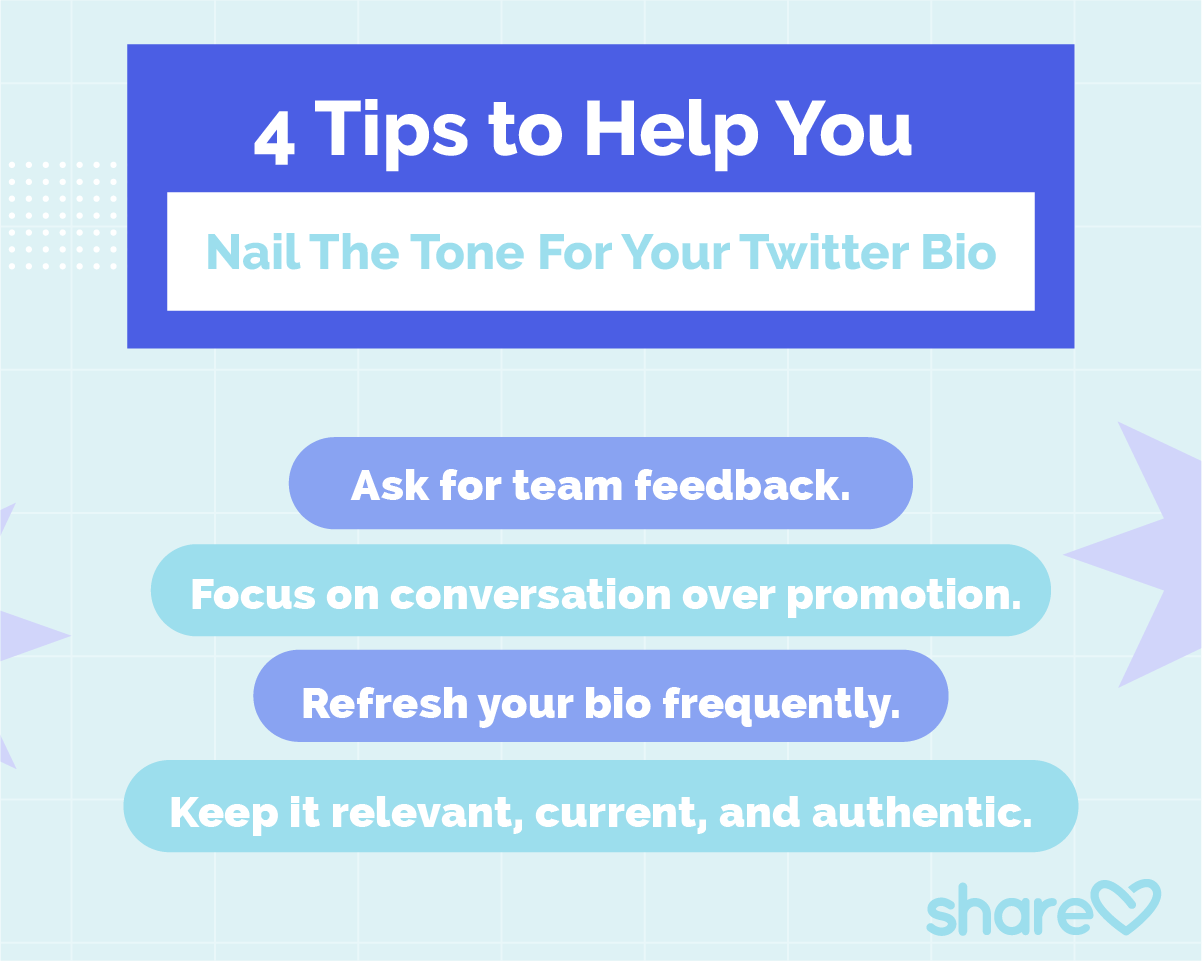
Twitter Bio Best Practices
We’ve covered quite a few tips and tricks for your Twitter bio, but which ones are most important? We recommend the following best practices for all Twitter brands hoping to build a larger following on the platform:
- Include keywords, CTA, and product/brand benefits in your bio.
- Show off your real, authentic brand personality — avoid sounding like a marketer.
- Use humor with caution.
- Avoid hashtags (save them for your Tweets).
- Refresh your profile on a consistent basis.
- Monitor your competitors and industry influencers to help guide your tone.
- Ask your team members for feedback and ideas.
Download Twitter Bio Best Practices Here: just right-click and “save” the infographic below!
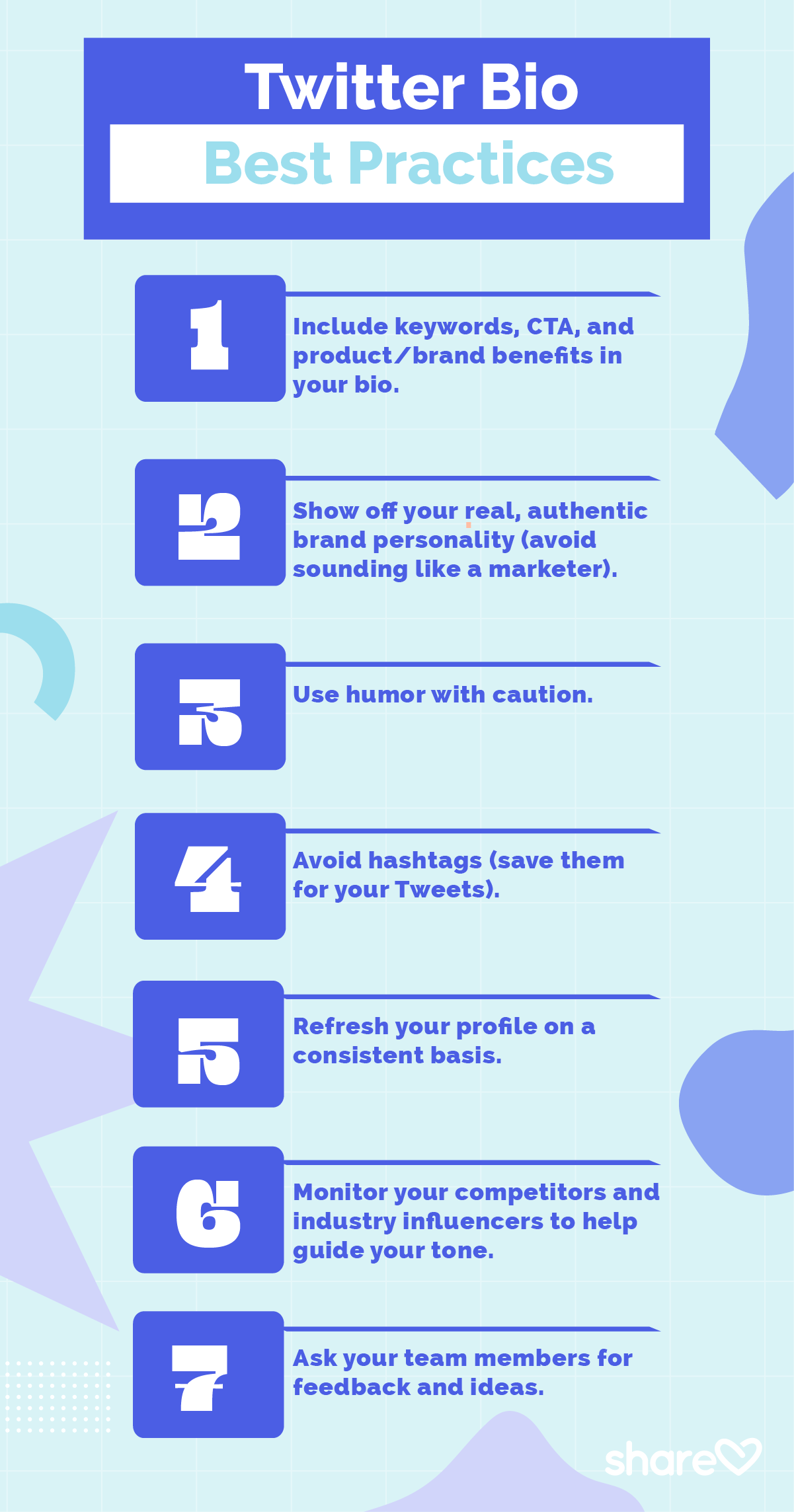
Twitter Bio Ideas, Inspiration, And Examples
Pulling together a strong Twitter bio often means browsing other ones to get a feel for how you want to craft yours.
Below, we’ve included several examples of successful Twitter bios below to help spark ideas for your brand.
Share them with your team to get the conversation started!
BBC News incorporates the Twitter handles to its other accounts in its main Twitter bio:
- “News, features and analysis. For world news, follow @BBCWorld. Breaking news, follow @BBCBreaking. Latest sport news @BBCSport. Our Instagram: BBCNews”

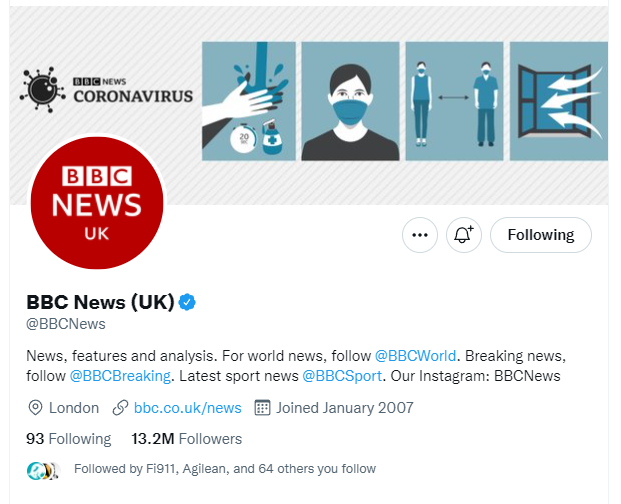
Jetblue kicks it off with a play on words to show some personality:
- “Hi, nice to tweet you! For concerns that require a response, visit http://jetblue.com. Learn how we are keeping you safe and well: http://jetblue.com/safety”
The New York Times uses a simple CTA (and nothing else!) as its bio :
- News tips? Share them here: http://nyti.ms/2FVHq9v
Gucci does Gucci by making a simple statement that describes the brand:
- “The world of Gucci, as envisioned by Creative Director #AlessandroMichele”
Frank’s Red Hot hits hard with its red hot (and unique) personality:
- “I put that $#!t on everything. Including Twitter. 🔥”
Author Mason Cross describes what he does, shares his pseudonym, publisher, and agency.
“Dad, husband, Batman fan, writer of thrillers. Moonlights as @TheAlexKnight. Published by @OrionBooks, rep’d by @LBA_Agency”
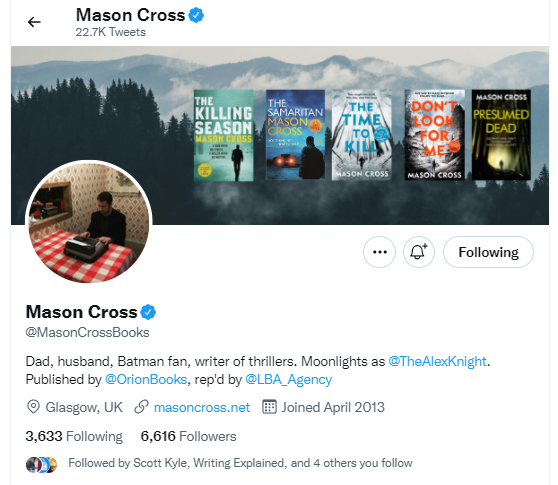
Roku describes its brand, product, and consumer benefits, then lists its customer support handle:
- “We’re movie and TV lovers developing Roku devices to make your streaming experience even better. For support-related questions, tweet @RokuSupport.”
Kentucky Fried Chicken shows off its unique personality while also promoting its product:
- “Kentucky Fried Chicken. Founded by The Colonel. Practitioners of The Hard Way. Purveyors of the World’s Best Chicken. Customer support: @TelltheColonel”
Apple’s bio includes only one thing: its website address:
Some of the most successful brands on Twitter have the simplest bios, such as:
- @barackobama: “Dad, husband, President, citizen.”
- @justinbieber “JUSTICE the album out now”
- @katyperry “Love. Light.”
- @taylorswift13: “Happy, free, confused and lonely at the same time. Red (Taylor’s Version) out now”
However, the top Twitter brands are (ridiculously) famous, so they don’t need to say a lot. Most businesses will want to take the time to describe who they are and what they do, to help Twitter users decide whether or not to hit “Follow.”
Successful brands use a unique tone to convey the information in their Twitter bio. To develop the best bio for your brand, invite your team to submit unique ideas, then experiment to find out how different types of bios improve your success on the platform.
Crafting The Perfect Twitter Bio For Your Brand
Twitter is a vibrant, unique community of people who embrace brand participation as long as the brands are authentic and work to entertain, inform, or move their readers.
There are many things you can include in your Twitter bio, but the most important for businesses are: keywords, benefits, CTA, and personality.
On Twitter, people will call you out and embarrass your brand if they feel you are inauthentic or cliche, so be sure to solicit feedback from your team before you publish your bio.
Keep your bio relevant by refreshing it frequently and stay up to date by engaging on the platform, including monitoring your competitors and industry influencers.
Your Twitter bio is your brand’s introduction to the millions of people on the platform. Keep it authentic, informative, and interesting to make the most of potential followers.
Did you know? You can increase your Twitter following quicker by cross-promoting your account on other platforms and publishing your Tweets to Instagram, Facebook, and LinkedIn!


